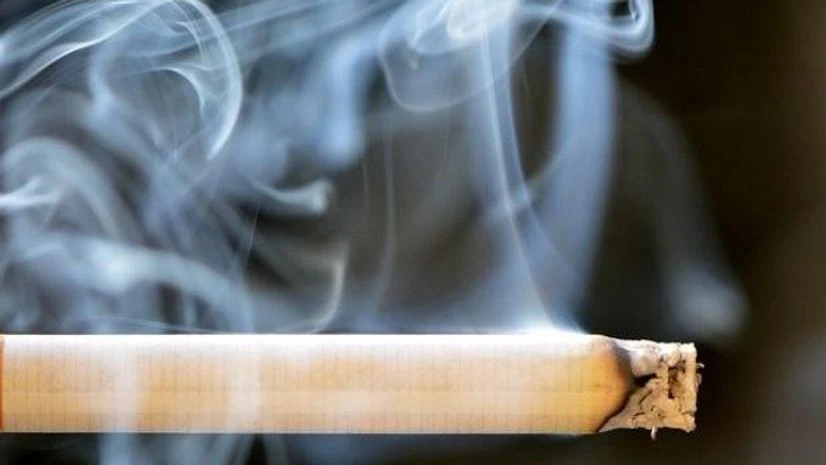A study led by the AIIMS-Gorakhpur has showed a link between secondhand smoke and the severity of COVID-19 in non-smokers.
According to the first-of-its-kind study conducted across six states, reported exposure to second-hand smoke at home and the workplace significantly increased the chances of developing severe COVID-19 compared to those not exposed to it.
"The health risks due to exposure to SHS is in infringement to basic human right to life," said Dr Surekha Kishore, executive director of the All India Institute of Medical Sciences (AIIMS), Gorakhpur, Uttar Pradesh.
"Findings of our multi-centre study demonstrate that exposure to secondhand smoke increases vulnerability to COVID-19 severity in non-smokers.
"I congratulate the government for initiating the amendment of COTPA (Cigarettes and Other Tobacco Products Act) 2003 and urge it to expedite this process so that non-smokers can be protected from being exposed directly and indirectly to tobacco products," she said.
While research has shown that smoking increases the likelihood of COVID-19 infection and the severity of the illness, few studies have addressed the impact of secondhand smoke on the severity of Covid cases, according to a statement.
More From This Section
Secondhand smoke contains more than 7,000 chemicals and is a known cause of diseases such as lung cancer, coronary heart disease and chronic lung disease that increase the severity of COVID-19, experts said.
While India's tobacco control law prohibits smoking in many indoor public places and the workplace and public transport, smoking is still allowed in designated smoking areas in airports, hotels having 30 or more rooms, and restaurants having seating capacity for 30 or more.
The study's objective was to examine the association of exposure to secondhand smoke in the home or workplace with the severity of COVID-19 among non-smokers, according to the statement.
The researchers used in-patient records to identify individuals aged 18 and older who were diagnosed with COVID-19 and admitted to hospitals with severe signs of the virus from January 2020 to February 2022.
These cases were then compared on exposure to secondhand smoke and other health, lifestyle, and demographic variables to a control sample who were also diagnosed with COVID-19 in the same time period but who showed only mild or moderate signs.
The study was conducted among non-smokers to eliminate the confounding effects of smoking.
"Reported exposure to secondhand smoke at home and reported exposure at work were significantly correlated with severity of COVID-19. Controlling for all potential confounders, exposure to SHS significantly increased the odds of developing severe COVID-19 compared to those not exposed," according to the study.
After controlling for all potential confounders using multi-nominal regression analysis, the study showed that the odds of developing severe Covid were 3.03 times as high for those with home exposure to secondhand smoke than for those without home exposure.
Those with SHS exposure at the workplace had 2.19 greater odds of developing severe COVID-19 than those not exposed.
Other health variables significantly associated with severity of COVID-19 were vaccination status, body mass index, and blood sugar and blood pressure levels. Age, marital status, education status, and socio-economic status were also significantly associated with severity of the disease, according to the study.
(Only the headline and picture of this report may have been reworked by the Business Standard staff; the rest of the content is auto-generated from a syndicated feed.)

)
